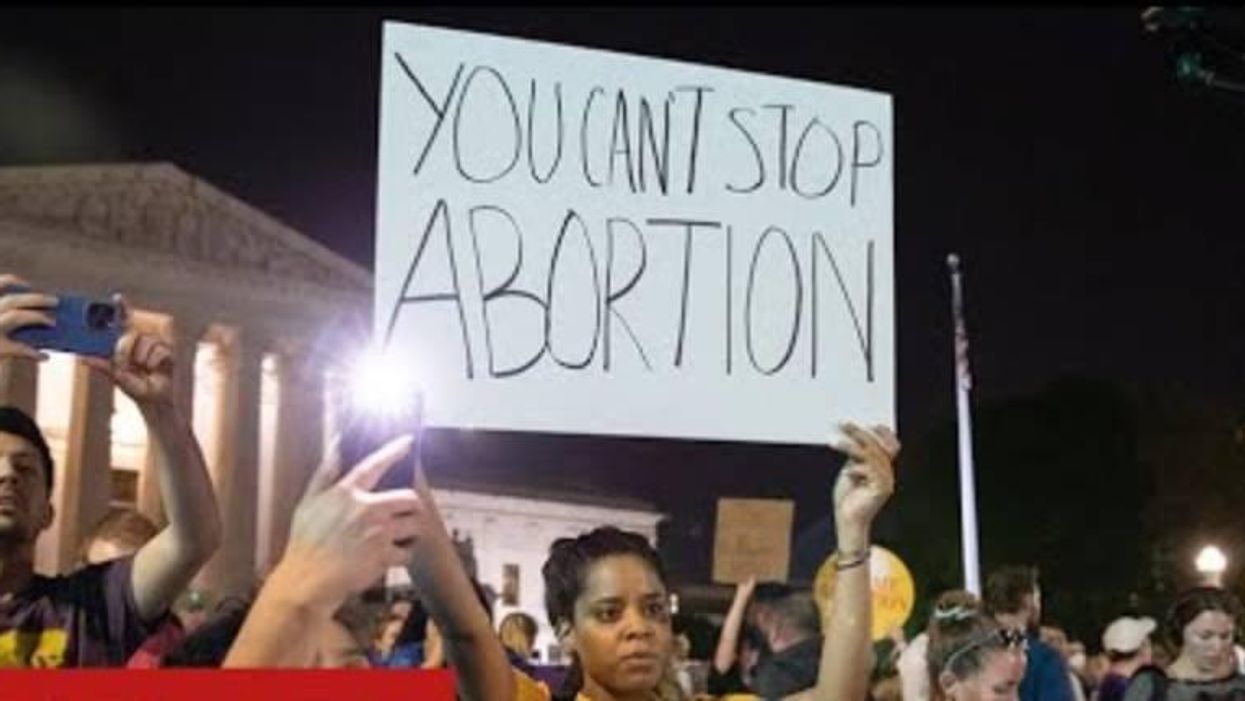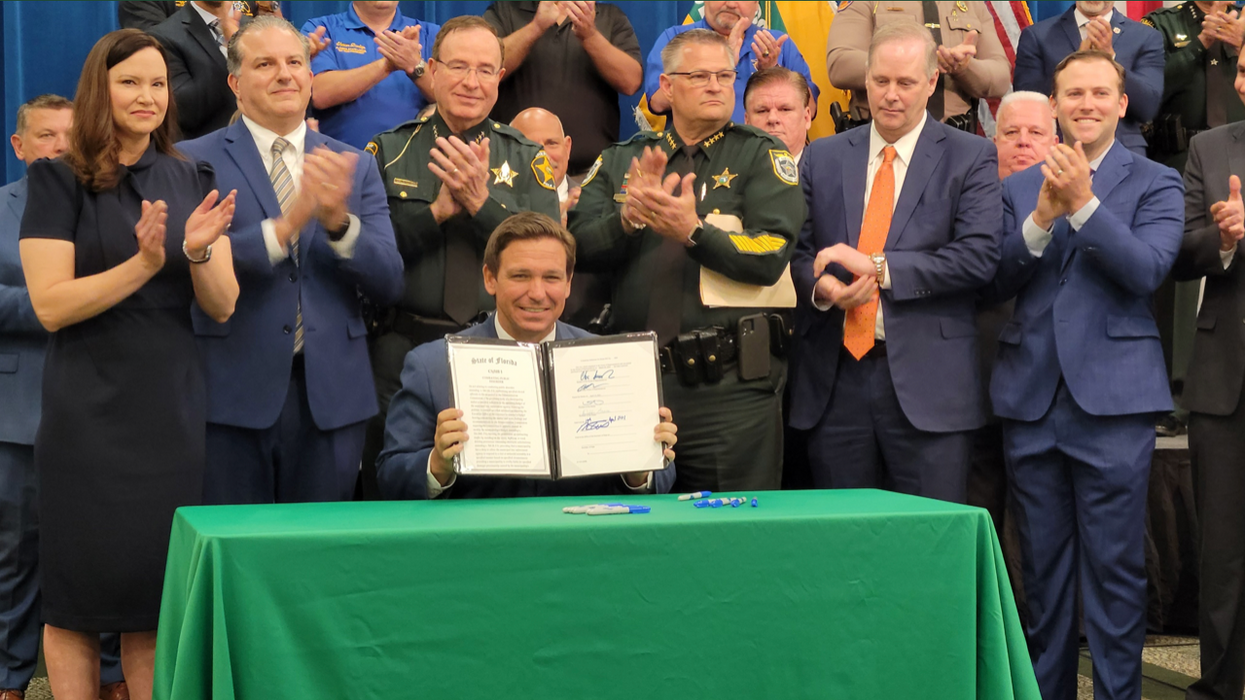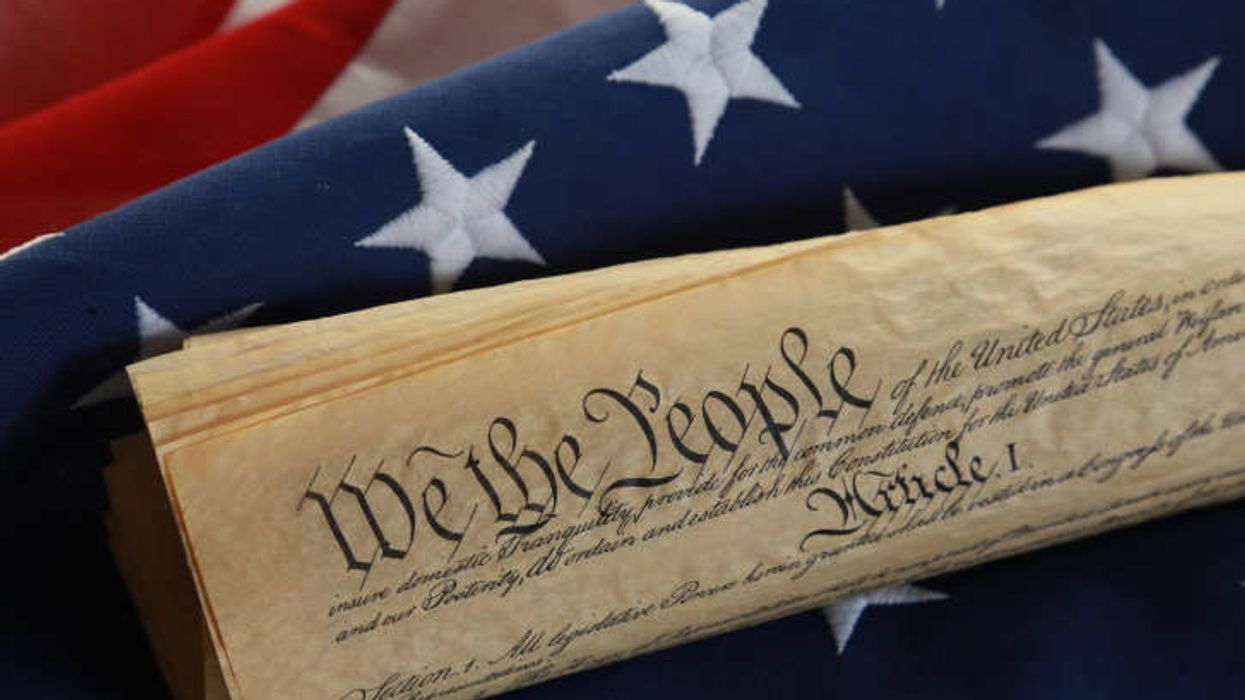The Coming Fight Over Out-Of-State Abortions
Now may be a good time to max out your investments in airlines, car rental agencies, and intercity bus companies. Travel has picked up as the pandemic has ebbed, but the Supreme Court could give it an extra boost by revoking the constitutional right to abortion.
If that happens, a lot of American women are going to find that "shop local" is a useless slogan when it comes to this type of commerce. The pro-choice Center for Reproductive Rights has predicted that with Roe gone, "abortion would remain legal in twenty-one states and likely would be prohibited in twenty-four states."
Vast swathes of the continent would become abortion-free zones — free of legal abortions, anyway. But Americans have been traveling to get what they want since the Pilgrims arrived, and women with unwanted pregnancies are no exception.
In the days before Roe, when the procedure was illegal in most of America, places like New York and Washington state had lots of visitors who didn't come for recreation. Some 40 percent of all abortions were performed on patients outside their home state.
Already, liberal states are a destination for desperate abortion-seekers. Illinois, surrounded by states that have greatly restricted access, saw nearly 10,000 women come from out of state to get abortions in 2020, the Chicago Tribune reports. Planned Parenthood says that number may quadruple if Roe falls. We are on the verge of a wave of abortion refugees.
But anti-abortion advocates are not likely to accept this outcome as inevitable. A bill was introduced recently in the Missouri legislature to bar its residents from getting abortions out of state.
Republican Rep. Mary Elizabeth Coleman told Politico: "If you believe as I do that every person deserves dignity and respect and protection whether they're born or unborn, then of course you want to protect your citizens, no matter where they are." Though her measure didn't pass, it will undoubtedly inspire other states to enact their own bans.
That would be a radical step, but "radical" is a term of endearment in the anti-abortion movement. It would be a terrible idea, though, and one at odds with our entire system of federalism.
One of our fundamental freedoms, long recognized by the Supreme Court, is the right to travel within the United States and be treated as an equal citizen from sea to shining sea. A state government can no more burden the freedom of its residents who venture out of state than it can burden the freedom of migrants from out of state.
In 1969, the court struck down a California law imposing a residency requirement for public assistance. It said the rule violated the right to travel and amounted to "an unconstitutional discrimination which violates the Due Process Clause of the Fifth Amendment."
For a state to assert its power over citizens beyond its borders would be an act of extreme presumption. Decades ago, when Nevada was the only state with legal casinos, everyone could go there and gamble without fear of bluenoses back home.
The same limits apply today. Utah can ban recreational cannabis, but its residents may drive to Colorado to get high. California may forbid the open carry of guns, but it can't stop Angelenos visiting Arizona from packing in public view.
As University of Pennsylvania law professor Seth Kreimer has written, one basic principle of American federalism is "that each citizen may take advantage of the liberties offered by any state." This arrangement also contributes to our national civic peace by accommodating a diversity of policies.
Anti-abortion advocates may argue that their cause is different because it involves life and death. Not so. A New Yorker who kills a fellow New Yorker in Atlanta and is acquitted under Georgia's "stand your ground" law cannot be convicted under New York's less lenient statutes.
Conservatives, who champion state sovereignty, should recognize that only one state can be sovereign within its borders. Otherwise, every state could extend its policies into the other 49 states.
The right should also beware of handing a new weapon to progressives. If a state can punish conduct that takes place in another state, Connecticut, which bans "assault weapons," could imprison a resident who uses one for target shooting in Maine. The possibilities for liberal mischief are endless.
If and when the enemies of Roe win their greatest victory, they will be tempted to seize every possible method of exploiting this success. But even the long reach of the law needs limits.
Reprinted with permission from Creators.




